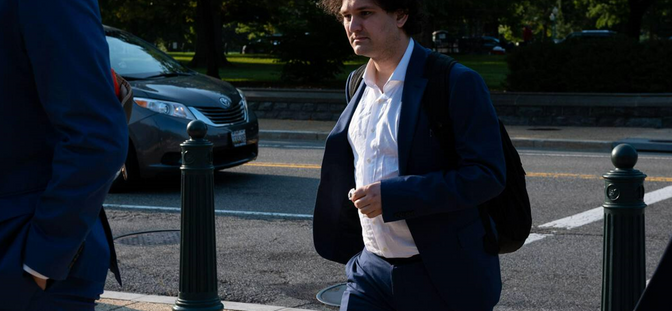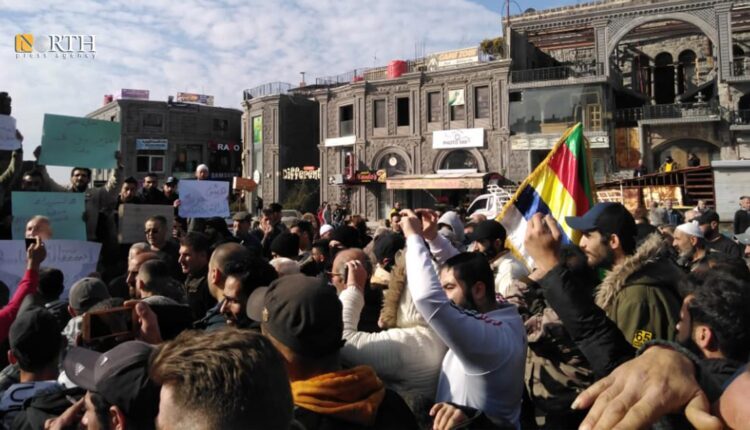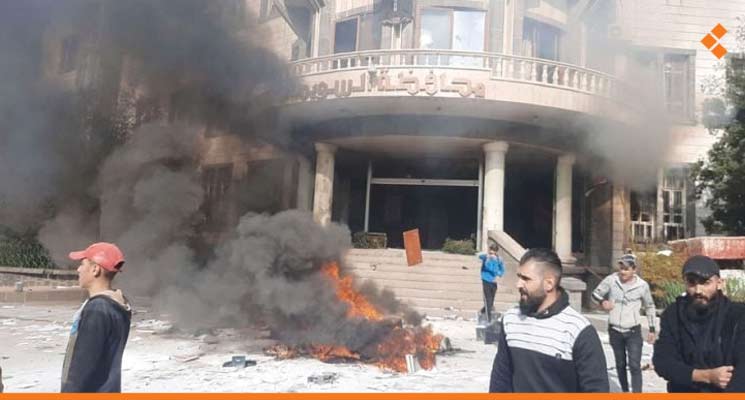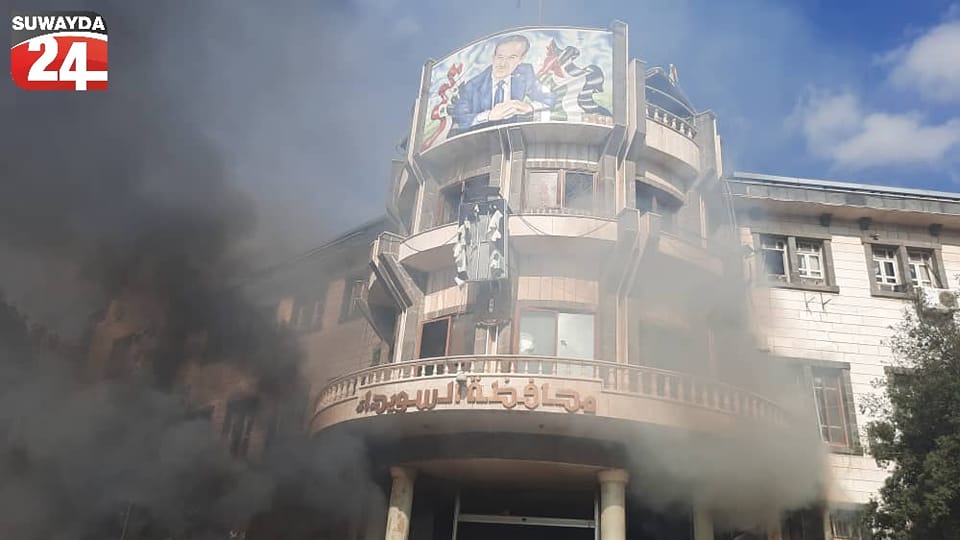
SBF has made previous appearances in the US courts, but as an advocate for crypto regulation rather than a defendant
William Farrington
Fri 09 Dec 2022
Sam Bankman-Fried has given mixed signals on his intentions to testify at a December 13 US Senate hearing into the collapse of the FTX cryptocurrency exchange.
Bakman-Fried (aka SBF) initially snubbed the request from the Senate Banking Committee by failing to respond by the December 8 deadline for the hearing.
But taking to Twitter today, SBF had a slight change of tone.
“I still do not have access to much of my data -- professional or personal, so there is a limit to what I will be able to say, and I won't be as helpful as I'd like. But as the committee still thinks it would be useful, I am willing to testify on the 13th,” said SBF.
He continued: “I will try to be helpful during the hearing, and to shed what light I can on FTX US's solvency and American customers, pathways that could return value to users internationally, what I think led to the crash, My own failings.”
His change of heart may have been in response to comments made by chairwoman Maxine Waters of the House Committee on Financial Services, who Tweeted that “a subpoena is definitely on the table”.
Although US prosecutors have launched an investigation into market manipulation at FTX, no arrest warrant has been issued at this point, so he probably will not be met with handcuffs on touching US soil.
The crypto industry contributed to both parties and got what it wanted. With no partisan benefit, will anyone in Congress complain?
Former CEO of FTX Sam Bankman-Fried testifies during a hearing before the House Financial Services Committee Dec. 8, 2021. Bankman-Fried said he’d sent about the same amount of money to Republicans as Democrats. | Alex Wong/Getty Images
By MICHAEL SCHAFFER
POLITICO
12/09/2022
To most people, the implosion of the cryptocurrency marketplace FTX seems like an emblematic 21st century imbroglio, replete with indecipherable technological and financial jargon. But to Washington good-government advocates watching the political fallout this month, it also points to something that feels distinctly retro: A bipartisan Beltway scandal.
Writ large, the Washington aspect involves the speed with which the crypto industry managed to insinuate itself at the nexus of money and power across the political spectrum just as the government was grappling with how to regulate this confounding new industry.
Writ small, it involves a March letter from eight members of Congress to Securities and Exchange Commission Chair Gary Gensler sharply criticizing the organization’s ongoing investigation of blockchain and cryptocurrency firms. The legislators, most of whom had gotten significant contributions from crypto players, essentially called on the feds to back off.
“Federal agencies must be good stewards of the public’s time, and not overwhelm them with unnecessary or duplicative requests for information,” the letter scolded, warning against bureaucratic buttinskis who might “stifle innovation.” The letter, written when the likes of Sam Bankman-Fried were riding high, somehow didn’t suggest that watching out for fraud or protecting the broader financial system might also be worthwhile endeavors.
Listen to POLITICO Tech’s multi-part podcast series on cybercrime below, and find the whole series here.
The American Prospect, which reported on the missive in the spring and followed up last month with a report noting that one of the firms the legislators were protecting was FTX, dubbed them the “Blockchain Eight.”
It’s a neat bit of populist labeling. What’s notable about the Blockchain Eight, though, is that four of them are Democrats and four are Republicans. Like the Keating Five at the center of the infamous 1989 savings and loan scandal, the group is bipartisan: The letter’s signatories included Republicans Tom Emmer, Warren Davidson, Byron Donalds and Ted Budd, as well as Democrats Darren Soto, Jake Auchincloss, Josh Gottheimer and Ritchie Torres.
“It’s cross ideological,” says Aaron Scherb, who keeps an eye on Congress for Common Cause, the good-government watchdog group. “All sorts of crypto players throw their money around, to progressive causes, conservative causes.”
“There’s a big bipartisan element there, which certainly can’t be said” of most other recent legislative furors, says Robert Maguire, the research director for Citizens for Responsibility and Ethics in Washington, which filed a campaign-finance complaint against Bankman-Fried yesterday.
To be clear, no one is accusing the eight of breaking the law. Rather, they’re under fire for advocating dubious government actions that benefit a deep-pocketed industry whose public reputation has just gone sideways. It’s about grossness, not criminality. (They’ve denied that they were trying to get the feds to back off.)

“The whole FTX fiasco is nothing but the latest example of how a particular firm, but really an industry, uses all the levers of the influence industry to basically hijack the agenda and put its narrow self-interest on the top and subordinating the public interest at the same time,” says Dennis Kelleher of the advocacy organization Better Markets.
In the grand scheme of things, one measly letter is not the biggest deal. But, Kelleher says, the bipartisan nature of the Blockchain Eight — and crypto’s legislative fans more generally — is actually a big deal. “The point of those letters, and by the way, the unreported phone calls that almost always accompany such letters, is not to get a particular response. It’s to bully regulators in the hope that they will back off, because of the political pressure and the political scrutiny, particularly when it’s bipartisan.”
Whatever effect the authorship of that March letter did or didn’t have on the SEC, the bipartisan cast of crypto’s legislative support has likely had a major impact on another Beltway institution: Washington’s scandal-industrial complex.
An optimist might think that at this time of constant political warfare, a good, old-fashioned both-sides-do-it scandal is just what an exhausted country needs — a chance to sing kumbaya and remind ourselves that, however much we may disagree about issues, avarice is an enemy we can all fight together.
But the political maneuvering over crypto during the past few weeks suggests that the modern capital’s polarized political-media ecosystem can’t do much with a potential scandal if there’s no partisan advantage to drive it.
Partisanship, it turns out, is the secret ingredient that turns a mere outrage into the sort of scandal that has a name and a cast of characters and a chance to drive Capitol Hill news cycles, wreck careers, or mint media stars. A Democratic administration’s disastrous gun-tracing program. A Republican president’s attempt to create foreign trouble for a domestic rival. A disproportionately GOP group of senators accused of trading on advance Covid information. The degrees of outrageousness vary. But it takes nothing away from them to note that all were hyped up by people with an obvious partisan interest in throwing tomatoes at the other side.
By contrast, what are the incentives for current pols to hyperventilate for the cameras about the letter to Gensler? Hakeem Jeffries could take to the floor to demand grave consequences for these perpetrators of financial-industry impunity. But he’d be hitting four prominent figures in his own caucus. A back-bench Republican could make a name for herself by calling for resignation or censure or some other unlikely, over-the-top punishment. But she’d be calling out her own party’s incoming majority whip, Emmer, and sliming a member who’s since been elected as a GOP Senator, Budd.
Instead of knifing colleagues as a way of riding the crypto meltdown to political fame, ambitious members seem to be giving FTX-adjacent colleagues cover. As POLITICO’s Lisa Kashinsky reported in Massachusetts Playbook this week, Assistant House Speaker Katherine Clark told “Meet the Press” that she won’t be demanding that fellow Democrats return contributions from Bankman-Fried, providing cover to her fellow Massachusetts legislator Auchincloss, a recipient of $5,800 from the FTX leader and thousands more from other figures at the company.
In a political system that is more ideologically sorted than ever, even the subject of a scandal or pseudo-scandals hints at its partisan impact. Of course a scandal over solar-panel subsidies — like Solyndra, which briefly occupied GOP attention during the Obama years — is going to hit Democrats. Likewise, of course a scandal over an energy-trading concern, like Enron in the Bush years, is going to be used against Republicans. But in the case of crypto, the money arrived before the partisan valence did, leaving Washington flummoxed.
Which is why the political system is spending a great deal of energy trying to fix a partisan overlay atop the industry, or at least atop its most high-profile disaster. As it happens, there is a pretty obvious target: Bankman-Fried has been an enormous funder of Democrats and left-leaning causes. In the year and a half before FTX blew up, he donated almost $40 million to campaigns and PACs, nearly all of it in support of Democrats. He had pledged to drop $1 billion ahead of the 2024 election. Sure enough, some pols quickly returned the donations, including former Rep. Beto O’Rourke, whose unsuccessful Texas gubernatorial campaign got $1 million. But many more did not.
And it doesn’t take much digging to see that FTX money landed in a lot of Republican coffers, too. Bankman-Fried’s partner Ryan Salame’s $23 million went largely to conservative causes. In an interview with a crypto reporter last month, Bankman-Fried said he’d sent about the same amount of money to Republicans as Democrats, but had funneled it as dark money because, as the Guardian reported, “reporters freak the fuck out if you donate to Republicans. They’re all super liberal, and I didn’t want to have that fight.”
Bankman-Fried’s outsize persona — combined with our cultural fascination with alleged fraudsters — has still made FTX a huge story, one that has included plenty of strong reporting about the crypto kingpin’s courtship of Washington. But without the organized chorus of voices calling for heads to roll, it’s harder to make sense of the outrage and what it should lead to. Even the $3 million Capitol Hill townhouse a Bankman-Fried nonprofit had purchased to throw lavish parties for Washington players, according to a sweeping Insider story, had a Democratic night and a Republican night.
Ultimately, the incoherence has real implications for regular people. After all, crypto’s wooing of Washington involved a tangible question before Congress: Which part of the government should keep tabs on the industry? Should it be the larger, more aggressive SEC? Or the smaller Commodity Futures Trading Commission, which skeptics think could be more easily captured by industry (and several of whose veterans have gone to work for crypto)? Bankman-Fried and other crypto bigshots very much wanted the latter.
Absolutely nothing that’s happened suggests that goal has been derailed. A Bankman-Fried backed bill to codify the CFTC’s role, consponsored by Democratic Senators Debbie Stabenow and Republican colleague John Boozman, remains before the Senate. At a hearing last week that examined the FTX bankruptcy, Stabenow pushed back against the notion that the bill would cut the SEC out of the picture. But the scandal had not scuttled the effort. Nor has it wiped out another bill, from Democrat Kirsten Gillibrand and Republican Cynthia Lummis, would also give CFTC more sway and is also viewed skeptically by crypto critics.
It’s tough to imagine that happening if one party — it almost doesn’t matter which one — had decided to weaponize FTX for political advantage.
“There’s definitely been a disappointing response in terms of, like, you’re still seeing Gillibrand trying to push her bill,” says the Revolving Door Project’s Jeff Hauser, whose organization has tracked the flow of public servants into the industry. “No one’s showing any shame.”
Ironically, thanks to the ongoing evolution of the two parties, there is a scenario where elements of both could join together to do just that. Among Democrats, notables like Elizabeth Warren have predicted economic doom as a result of crypto. My colleague Zachary Warmbrodt reported back in March about tensions between her group of mostly older, left-leaning Democratic crypto skeptics and younger Democratic colleagues like the letter signatories. And emerging elements of the GOP have also turned against the casino-ification of the economy. At the hearing last week, Kansas Senator Roger Marshall, a conservative who voted against certifying the 2020 election, came out swinging against crypto.
When I asked him about the issue, Oren Cass of American Compass, a think tank devoted to reforming markets from the right, put his feelings thusly: “Free markets aren’t enough — public policy must prevent senseless financialization of the economy and ensure that our markets are productive ones.”
But right now, the absence of partisan advantage still makes it feel like a car with no gas in the tank.
It’s a notable difference from the bipartisan fallout from the Keating Five, the group of senators accused of intervening improperly in the regulation of a politically connected savings and loan. Bartlett Naylor of Public Citizen, who was an investigator with the Senate Banking Committee at the time, said the shame felt by John McCain about his role pushed him toward a reformist political stance. “Among the positive byproducts of the Keating Five scandal is that John McCain went from your standard bad Republican on banking to one of the outstanding reform guys on banking,” he says. “He saw Jesus.”
For their part, members of the Blockchain Eight don’t seem to be acting as if their warmth towards the industry is a political liability that requires a visit with the almighty. In a letter this week to the U.S. Comptroller General, Torres sharply criticized the SEC…for not watchdogging hard enough. “If the SEC had done the due diligence of thoroughly investigating the financials of FTX, there would have been a greater likelihood of exposing the crypto exchange for what it truly is: a house of cars built on monopoly money printed out of thin air,” he wrote.












